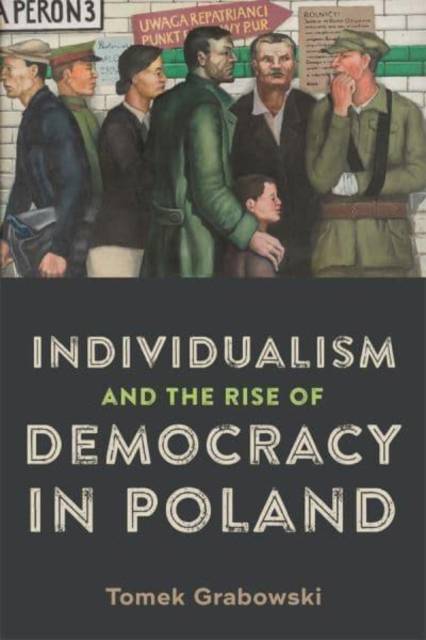
Onze Vivlio e-readers ondervinden momenteel synchronisatieproblemen. We doen er alles aan om dit zo snel mogelijk op te lossen. Onze excuses voor het ongemak!
- Afhalen na 1 uur in een winkel met voorraad
- Gratis thuislevering in België vanaf € 30
- Ruim aanbod met 7 miljoen producten
Onze Vivlio e-readers ondervinden momenteel synchronisatieproblemen. We doen er alles aan om dit zo snel mogelijk op te lossen. Onze excuses voor het ongemak!
- Afhalen na 1 uur in een winkel met voorraad
- Gratis thuislevering in België vanaf € 30
- Ruim aanbod met 7 miljoen producten
Zoeken
Omschrijving
A fascinating story of the rise of individualism in the formerly German Western Territories of Poland after World War II and how this new culture powered Poland's democratic-capitalist development. What does it take for a traditional society based on the primacy of the group over the individual to change into one where the autonomous individual is the most valued actor? How does this individualism in turn shape the possibilities of democratic politics? In this provocative book, author Tomek Grabowski argues that for liberal democracy to be sustainable, a prior breakthrough to individualism is often necessary, but that individualist revolutions are among the rarest in history. They require an unlikely confluence of three distinct historical processes-a large-scale uprooting of society, a frontier experience, and a process of civic nation building-in order to succeed. Grabowski illustrates this logic of a cultural breakthrough by focusing on the fascinating case of Poland, a country that was transformed, in the span of seventy years, from an archaic and peripheral polity into a vital component of the liberal-democratic West. The little known but central building blocks of Poland's individualist revolution included the uprooting of populations induced by the World War II, the chaotic frontier conditions that accompanied mass resettlement of the formerly German Western Territories, and the subsequent civic-educational efforts by the Catholic Church among the Polish settlers in the region. Drawing on a wealth of sources, from settlers' memoirs to contemporary interviews, Individualism and the Rise of Democracy in Poland breaks new ground with respect to both Poland's recent history and a larger cultural history of the West.
Specificaties
Betrokkenen
- Auteur(s):
- Uitgeverij:
Inhoud
- Aantal bladzijden:
- 378
- Taal:
- Engels
- Reeks:
- Reeksnummer:
- nr. 31
Eigenschappen
- Productcode (EAN):
- 9781648250590
- Verschijningsdatum:
- 14/02/2023
- Uitvoering:
- Hardcover
- Formaat:
- Genaaid
- Afmetingen:
- 231 mm x 155 mm
- Gewicht:
- 725 g

Alleen bij Standaard Boekhandel
+ 265 punten op je klantenkaart van Standaard Boekhandel
Beoordelingen
We publiceren alleen reviews die voldoen aan de voorwaarden voor reviews. Bekijk onze voorwaarden voor reviews.











